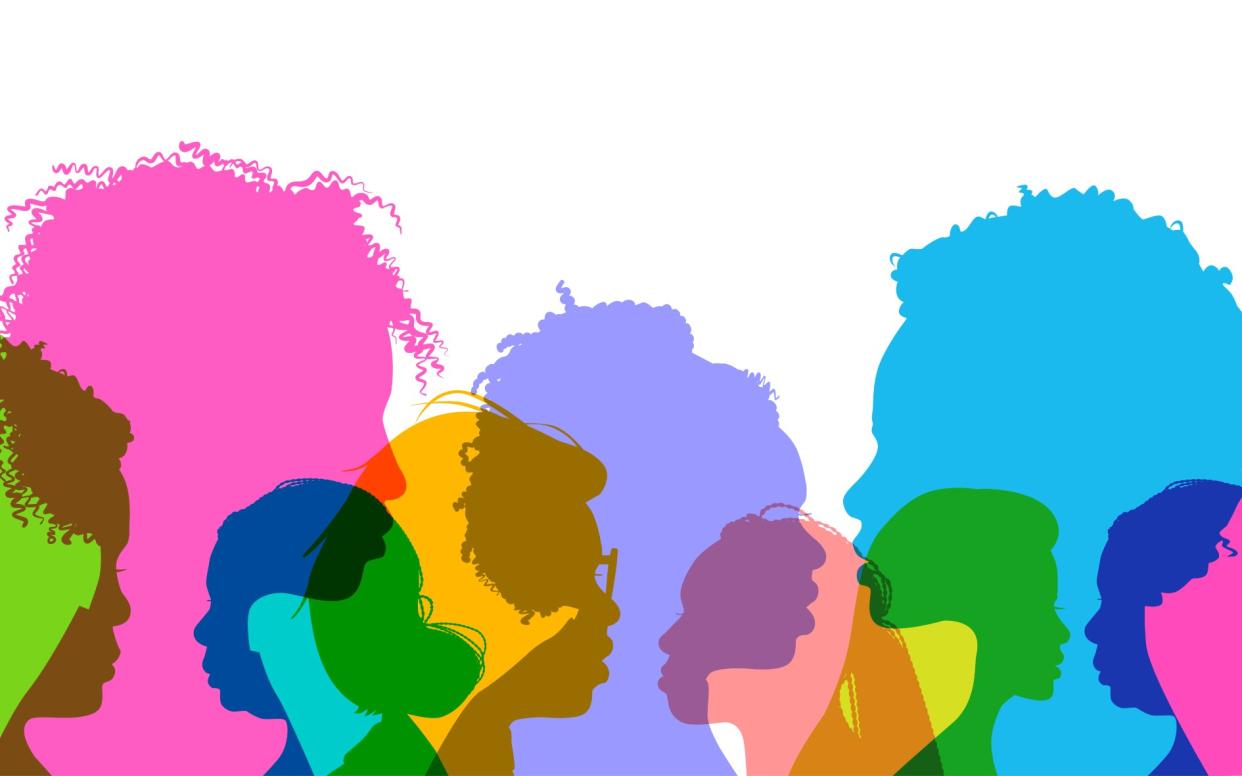Why the US needs the CROWN Act

- Oops!Something went wrong.Please try again later.
The family of a Black high school student in Texas has filed a lawsuit against Gov. Greg Abbott (R) and the state's attorney general after the student was suspended for over three weeks for wearing his hair in a style that school officials say violated the district's dress code. Darryl George, a 17-year-old junior at Barbers Hill High School, has been serving multiple in-school suspensions since Aug. 31 because of his locs, NPR reported. School officials say George's hairstyle violates the dress code for male students because his hair falls below his eyebrows and ear lobes, while the lawsuit argues that the suspension is in violation of the CROWN Act, a recently enacted state law that prohibits hair discrimination. George was suspended right before the law went into effect on Sept. 1.
The teen and his mother, Darresha George, are seeking a temporary restraining order and an injunction against Abbott and Attorney General Ken Paxton in hopes they will stop the school district from exposing its "students to disciplinary punishment and disciplinary measures due to locs, braid, twists and other protective styles that are alleged to be or that are longer than the District or schools' length requirement," per the lawsuit. The case has renewed interest in efforts to enact hair discrimination laws on a national level.
What is the Crown Act?
The CROWN Act and similar laws protect against discrimination in employment and education based on a person's hair texture or style associated with race, such as braids, locs, twists, or Bantu knots. The act's name stands for “Creating a Respectful and Open World for Natural Hair,” according to the official CROWN Act website. California was the first state to introduce the law in 2019, thus expanding the definition of racial discrimination in the state's Fair Employment and Housing Act and the Education Code for K-12 public and charter schools.
The movement to sign the CROWN Act into law at the state level has gained momentum. As of 2023, 24 states and the U.S. Virgin Islands have enacted a related law, according to the Economic Policy Institute, including Massachusetts, New York, New Jersey, and most recently Michigan and Texas. The latter was the 24th state to implement the law, which officially went into effect on Sept. 1.
Last spring, the House passed a national CROWN Act law. However, the bill later stalled in the Senate when it failed to get enough support from the Republicans to stop a filibuster from Sen. Rand Paul (R-Ky.), NPR reported. “Our fight is far from over," said Rep. Bonnie Watson Coleman (D-N.J.), who reintroduced the bill in the House, in a news release after the bill was blocked. Coleman vowed to "remain steadfast" to protect "all Americans’ right to exist as their authentic selves.”
Why is the legislation necessary?
While the Civil Rights Act of 1964 banned discrimination based on race, color, religion, sex, and national origin, "Black people continued to face professional and social stigma for not adopting grooming habits that fit white, European beauty standards and norms," The Associated Press explained. Policies against natural Black hairstyles deem them unacceptable in formal or professional environments, even when that is how the hair grows. In a 2019 study commissioned by personal care brand Dove, a co-founder of the coalition pushing the CROWN legislation, Black women were 80% more likely to feel pressure to change their natural hair to “fit in at the office."
Discrimination against hair textures is "rooted in systemic racism, and its purpose is to preserve white spaces," the NAACP's Legal Defense Fund said. Policies that ban natural hairstyles "have been used to justify the removal of Black children from classrooms, and Black adults from their employment," the organization added.
While race-based discrimination is already prohibited, “our current legislation or interpretation of it is insufficient, so the additional protection is needed,” Esi Eggleston Bracey, a co-founder of the CROWN Coalition, told CNN.
"People need to understand this is not superficial," Eggleston Bracey added. The discrimination "puts Black people under the microscope, and subjects us to humiliation, unfair inspection that’s undeserved."

